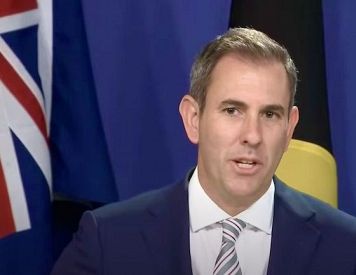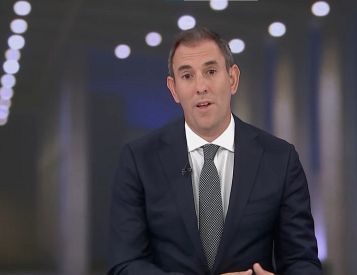After the trainwreck left by the Coalition, the Albanese Government is repairing Australia's economy in the face of financial crises, writes Stephen Koukulas.
*Also listen to the audio version of this article on Spotify HERE.
ONE OF THE IMPORTANT aspects of the first 21 months of the Albanese Government’s economic policy management has been the impressive start to the massive task of repairing the Federal Budget.
When Albanese won the Election in May 2022, the Budget was projected to record a $78 billion deficit in the next financial year, with government debt on course to exceed $1.2 trillion. Something needed to be done to avoid the economic trainwreck that these projections were foreshadowing.
In its first year, the new Albanese Government shocked everyone, including itself, delivering a budget surplus of $22 billion. This was a neat $100 billion turnaround from what was forecast in the last Liberal Budget. In its second year, it looks like the Albanese Government will deliver a balanced budget versus a $57 billion deficit projected by the previous Government, even though the economy is weakening under the weight of the interest rate tightening cycle of the Reserve Bank of Australia.
Treasurer Jim Chalmers will deliver the 2024-25 Budget on 14 May 2024.
A large part of this huge turnaround in the budget performance and outlook was better than expected economic news, especially regarding commodity prices, employment and wages. But unlike previous Coalition administrations, Treasurer Chalmers and Finance Minister Katy Gallagher “banked” the vast bulk of unexpected revenue from these gains while simultaneously offsetting the cost of new and important spending initiatives with cuts in wasteful spending elsewhere.
While there have been some calls for the Government to use these budget gains to provide cost-of-living relief, it has rightly resisted most of these calls, noting that such action would likely underpin inflation pressures that the Reserve Bank of Australia (RBA) is fighting hard to overcome with aggressive interest rate hikes.
One of the best and most efficient ways of helping households with the cost-of-living pressures is getting the inflation rate below wage growth.
The most recent data on wages and inflation, found here and here, shows this to be the case.
The repair of the Budget matters for several reasons, not least to have government finances in a sound shape. This restocking of the budget “war chest” of finances makes it better placed to tackle the next economic crisis that will surely come.
More immediate and vitally important is the massive savings on the interest the Government pays on its debt. Like households and businesses, when the Government borrows money to fund a budget deficit, it has to pay interest on that debt.
It does this through the bond market, where, each week, it borrows money from investors, superannuation funds and the like at an interest rate determined by the money markets, which, in turn, are influenced by the policy settings of the RBA. The cash it raises from these loans funds the budget deficit.
The current interest rate on government bonds is around four per cent. It is a little less for bonds issued for three years, and a little more for those issued for ten years and longer.
In simple terms, when economic policies reduce the deficit by $1 billion, there is an annual recurring interest saving of around $40 million.
For $100 billion less debt, the saving is a thumping $4 billion per annum in perpetuity.
This is a vital saving that Chalmers and Gallagher have delivered with prudent and cautious budget management.
If, as is likely, the Government locks in a further $50 to $60 billion improvement in the budget balance for financial year 2024-25 and the level of debt is lower by a similar amount when it delivers its budget in May, the cumulative saving on interest payments for the first two years of the Albanese Government will be around $6 billion. And this is per annum, every year into the future.
In other words, instead of sending the $6 billion on interest payments on debt, the Government can allocate those funds to child care, health, age care, renewable energy targets — anything it sees fit. It can do this and still have a vastly superior budget position than it inherited from the Coalition.
That said, the level of government debt is still around $900 billion and is likely to exceed $1 trillion in coming years unless future balanced budgets and surpluses are delivered.
This means that unless there is more budget repair in the next few years, in 2026-27, the Government will be spending close to $30 billion a year on interest payments alone.
This by itself confirms the need for more budget repair. This means locking in budget surpluses if possible, capping and lowering the level of government debt and, in the process, fixing the budget mess that was in place in 2022.
*This article is also available on audio here:
Stephen Koukoulas is an IA columnist and one of Australia’s leading economic visionaries, past Chief Economist of Citibank and Senior Economic Advisor to the Prime Minister.
Related Articles
- Australia's withholding of aid to Gaza a human rights disgrace
- Albanese Government will hope net migration has peaked
- AFR fudges figures to foment anti-Albanese fervour
- Getting away with murder: Time to go after the tax evasion 'sharks'
- Questions loom over mooted parent visa reforms
 This work is licensed under a Creative Commons Attribution-NonCommercial-NoDerivs 3.0 Australia License
This work is licensed under a Creative Commons Attribution-NonCommercial-NoDerivs 3.0 Australia License
Support independent journalism Subscribe to IA.














